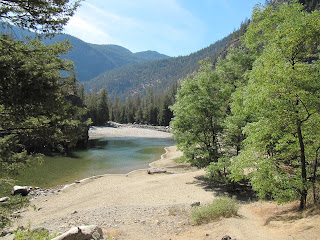The UK riots being the current media focus right now, I happened to hear a taped conversation between two self-acclaimed rioters on the CBC radio.
Many people may have lost their livelihoods because of the destruction and looting of small businesses in the cities where the riots were held. In today's economy they may not get much back on their insurance policies, never recover their losses, and be forced out of business. The large companies of course will survive and may fill the vacancies, which means less choice for shoppers and more influence for big business to pressure government for further tax cuts. This, as well as those whose houses were burned down, is a crime against the people of this nation.
The two rioters, drinking a bottle of stolen wine at 9:30 am, said they were 18 years old. They felt really good about their role in the looting. One of them claimed, to the agreement of the other, that this proves they can do what they want.
Well, no dear, you can't. Because the power you are using is not going to offer you a future any more than the power that is used against you. For a brief description of that I go to an article by
Michael Moore published in
Straight Goods.
It began centuries ago, but most recently on August 5, 1981, when Reagan fired every member of the air traffic controllers union who defied his order to return to work. They had been on strike for two days.
"Reagan had been backed by Wall Street in his run for the White House and they, along with right-wing Christians, wanted to restructure America and turn back the tide that President Franklin D Roosevelt started — a tide that was intended to make life better for the average working person."
His ideology was closely followed by Margaret Thatcher.
Since then we have seen a growing gap between haves and have-nots and our capitalist societies in the UK, Canada, and the US, have become more volatile, as jobs left the nation for places where exploitation had no competing infrastructure called "human rights". There is more hatred, despair, corrupt business practice by employers and employees, more reported issues of domestic violence, road rage, mass murderers, and more wars.
In short, what has happened to our civil society is that it has crumbled under the fierce competition for power and influence over others. Generally people will avoid blaming those who have orchestrated this break down, and instead vent their frustration on people and things that have less power than they.
For thirty years, big business with its instruments of "democratically" elected governments and media, have become the ruling party. They are instructing the people, through media persuasion and obfuscation, what to think, feel and buy.
The wisdom and morality that helped us evolve into civil societies, with law, education and health care, has eroded, and been replaced by fear. Fear stokes the lower human qualities of greed, envy and hate. We are continuing to spiral down, while a few elite are getting greedier and more
despotic in their actions.
Michael Moore is direct in his observation of what happened in America, which trickled down to events in Europe, "those in power ... destroyed the middle class of our country and, in turn, have wrecked the future for our young people."
Moore acknowledges they had the money, the media and the cops, yet the people numbered 200 million. Only twenty percent support the Tea Party, which has thrown a wedge into the nations' bid to survive.
Linda McQuaig (also in
Straight Goods) points out, "when Washington embarked on a frenzied search for ways to reduce the massive US deficit, a tax loophole that allowed hedge fund managers to pay tax at the exceptionally low rate of 15 percent certainly seemed like low-hanging fruit..." with polls indicating that Americans support "higher taxes on the rich as a way to reduce the deficit."
"Cancelling the loophole would save the treasury $20 billion over 10 years, and the public would surely be unmoved by the pain inflicted on hedge fund managers — the top 25 of whom took home an average pay last year of $880 million each."
Social programs for the middle class, the needy and the desperate, that have been cut could benefit from this $20 billion. A just society is a less fearful place to live in. But Republican Tea Party extremists, took control by cleaning the table of tax increases. McQuaig reports "All deficit reduction was to come exclusively from government spending cuts, hitting the middle and lower classes hard."
The future for us, our children, and grand-children, is debilitating poverty and chaos. We might be okay now, but in the war against humanity, we will surely be victims, as the uber powerful compete with one another to gain the most control through economic power.
Unless we wake up and see who the major looters and rioters are, we will be living in a polluted, devastated, bleak and violent world, such as Dickens illuminated in his stories of squalor. We can hardly expect our youth to be moral if our rulers are blatantly ruthless. And we can hardly rest at moralizing the rioters if we are not going to challenge the power currently operating and replace it with the human revering,
power from within.
What we can do is nurture our youth, nurture their understanding of how power works, so that they learn how to re-create a sustainable and just future. It has taken thirty years to completely undo the social justice values their grand-parents were raised on. We musn't expect our youth to learn how to rebuild it in a few days.












